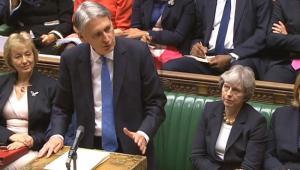Yesterday’s spring Budget was refreshingly gimmick-free and delivered by a chancellor growing increasingly confident in his role.
The underlying context and basis for spending decisions remains ¬– total national debt is too high and productivity too low – so in response, the chancellor signalled a number of short and longer term initiatives aimed at tackling these issues. He also set out some key support to deal with pressing problems affecting the frontline right now; namely the provision of social care.
Recognising the Office of Budget Responsibility’s warning over the continuing problem of low productivity across the UK economy, the Budget included very welcome support for skills and local growth through the introduction of T-level qualifications (which goes a long way to improving the parity of esteem with academic learning) and maintenance loans for adult learners.
Another welcome bit of news came as the chancellor responded to pressures on the health and social care system, announcing investment of an extra £2bn over three years in social care and increasing the NHS capital budget, both of which underpin the proposals in Sustainability and Transformation Plans. Local authorities and health care partners will await clarification on what conditions apply and how this boost to funding will be accessed and distributed.
Of course, pumping more short-term money into the system is not a silver bullet solution and so the promise of a government green paper that will examine how to place social care on a more sustainable footing over the long term is well overdue and very much welcome given our ageing population. However, it is worrying that the chancellor has already limited his options by ruling out some of the more radical proposals. It is imperative that all possible solutions are explored.
Investment in education was another key theme. The announcement of money to help rebuild and refurbish existing schools is encouraging, as is the recognition of the need for additional school places and the money to provide them. But it will be important this modest investment in school places is focused on those areas of most acute need.
Additional financial support to help diffuse the furore over business rates revaluations was expected. We will have to wait and see how this will work in practice, and also how the fundamental issues raised by the revaluation affect longer term plans for the 100% retention of business rates by local government from 2020 onwards.





















